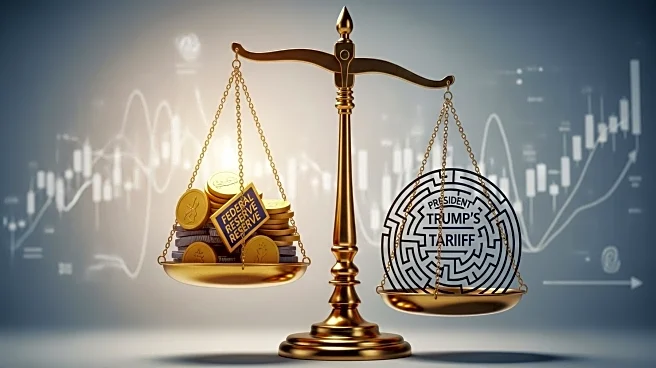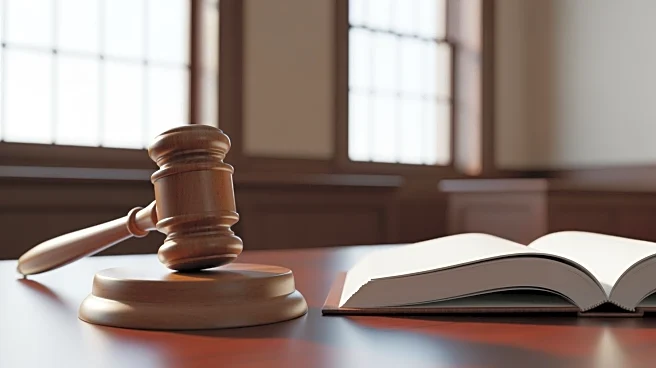What is the story about?
What's Happening?
President Trump is persisting with his tariff-heavy agenda despite widespread opposition and legal challenges. The tariffs have contributed to economic uncertainty, affecting the U.S. labor market and causing employers to hesitate in hiring. Meanwhile, the Federal Reserve has initiated interest rate cuts to counteract the weakening labor market and fears of an economic downturn. These cuts are expected to continue, providing relief to businesses through cheaper borrowing costs. The stock market has responded positively, with stocks reaching near all-time highs, partly due to optimism about potential economic growth and the Federal Reserve's actions.
Why It's Important?
The ongoing tariff policies and the Federal Reserve's response have significant implications for the U.S. economy. While tariffs aim to protect American manufacturing, they have also led to increased inflation and economic uncertainty. The Federal Reserve's rate cuts are intended to stimulate economic activity by making borrowing cheaper for businesses, potentially offsetting some negative impacts of the tariffs. However, the legal challenges to President Trump's tariff authority could lead to significant financial repercussions if the Supreme Court rules against the administration, potentially requiring refunds of tariff payments.
What's Next?
The Supreme Court is set to hear a landmark case in November that could determine the legality of President Trump's tariff actions. A ruling against the administration could lead to substantial financial liabilities for the government. Meanwhile, the Federal Reserve is likely to continue its rate-cutting strategy to support the economy. Businesses and investors will be closely monitoring these developments, as they could influence future economic policies and market conditions.
Beyond the Headlines
The legal and economic challenges surrounding President Trump's tariffs highlight broader questions about the balance of power between the executive branch and other government institutions. The outcome of the Supreme Court case could set a precedent for future presidential authority over trade policies. Additionally, the Federal Reserve's actions underscore the delicate balance it must maintain between controlling inflation and supporting economic growth.
















